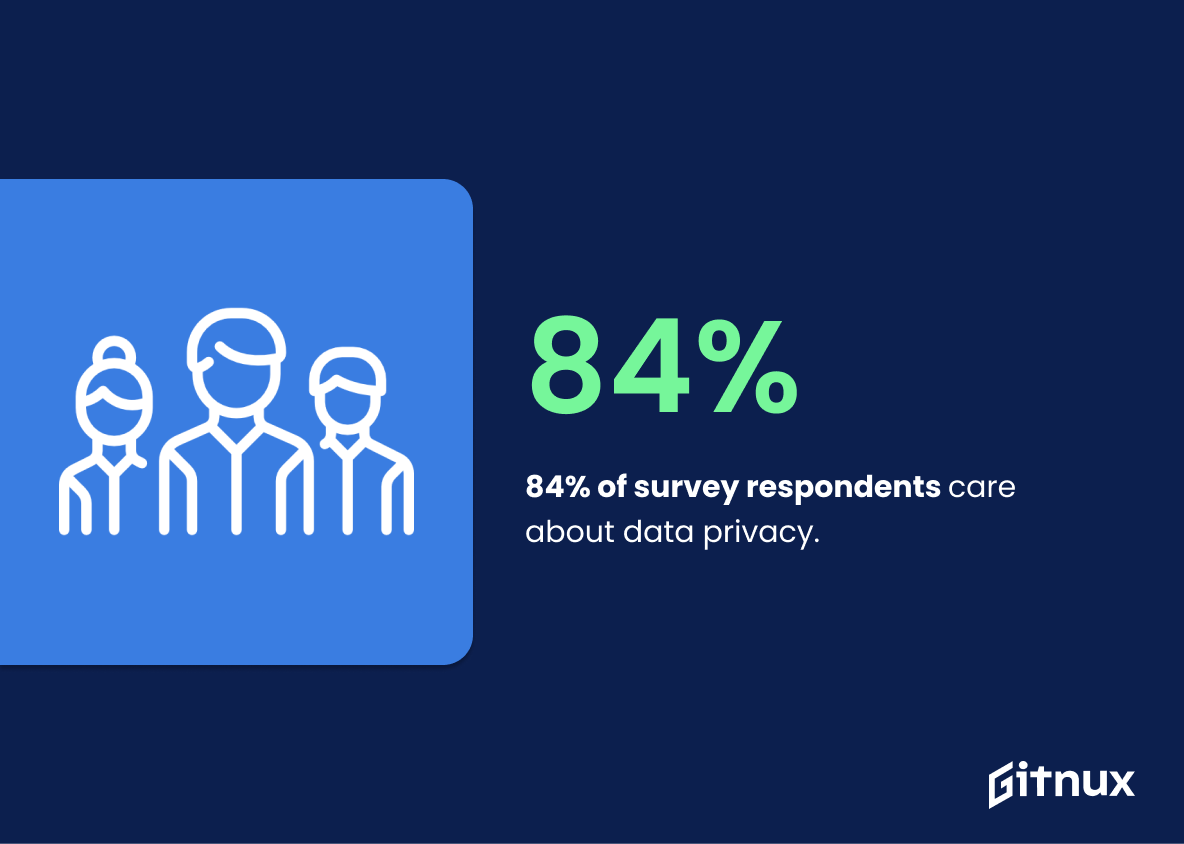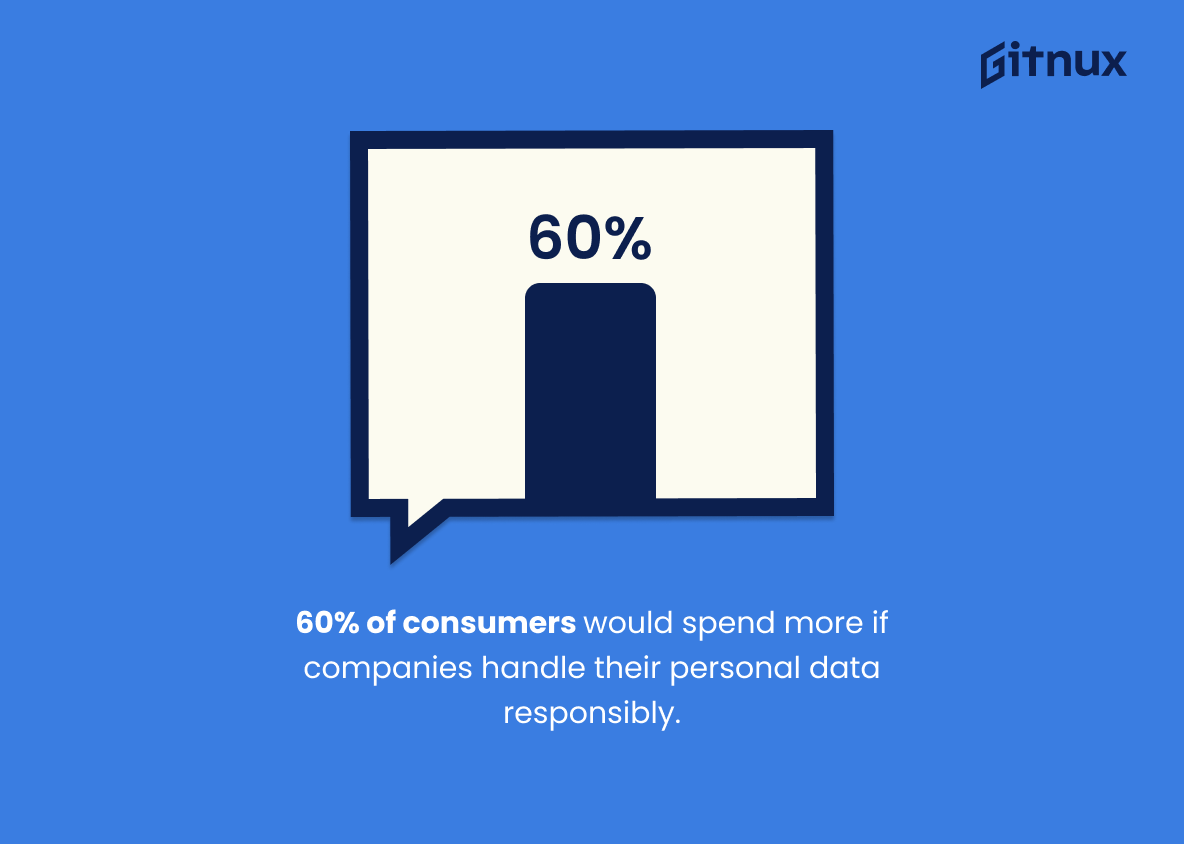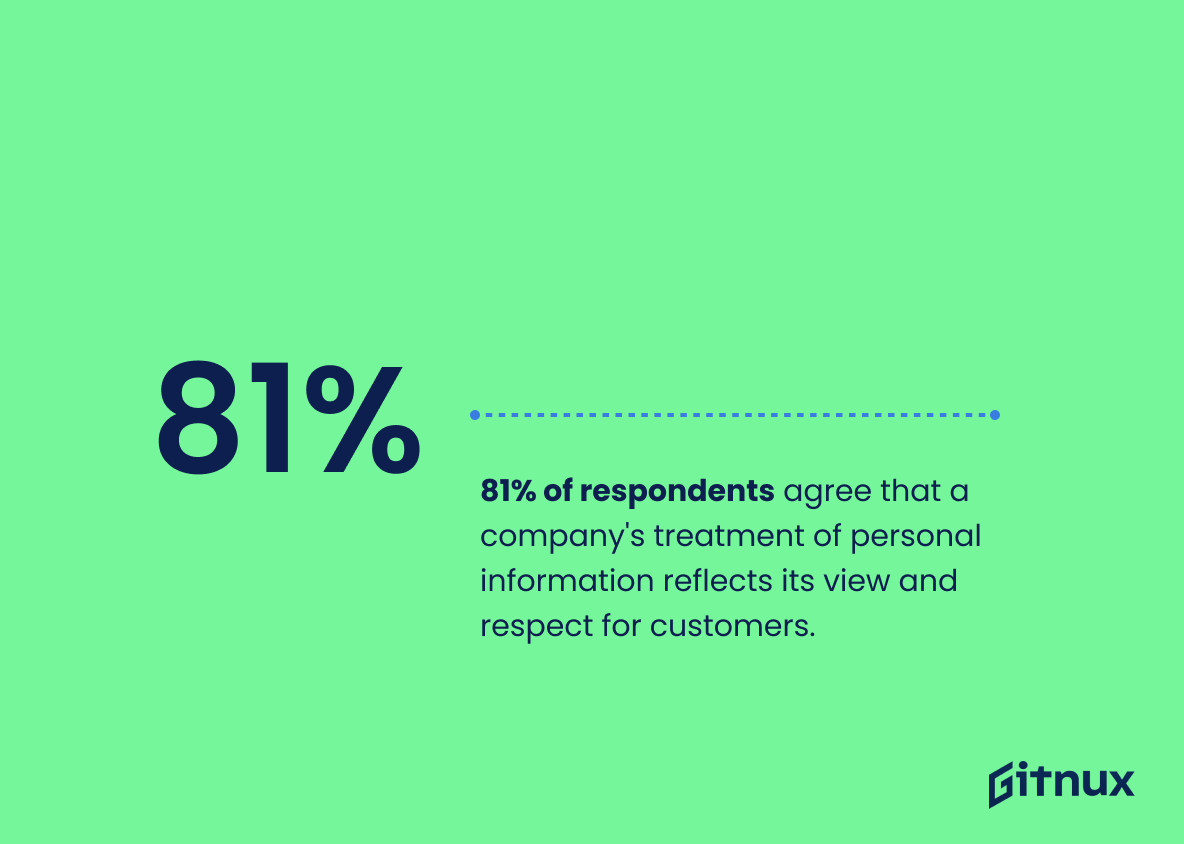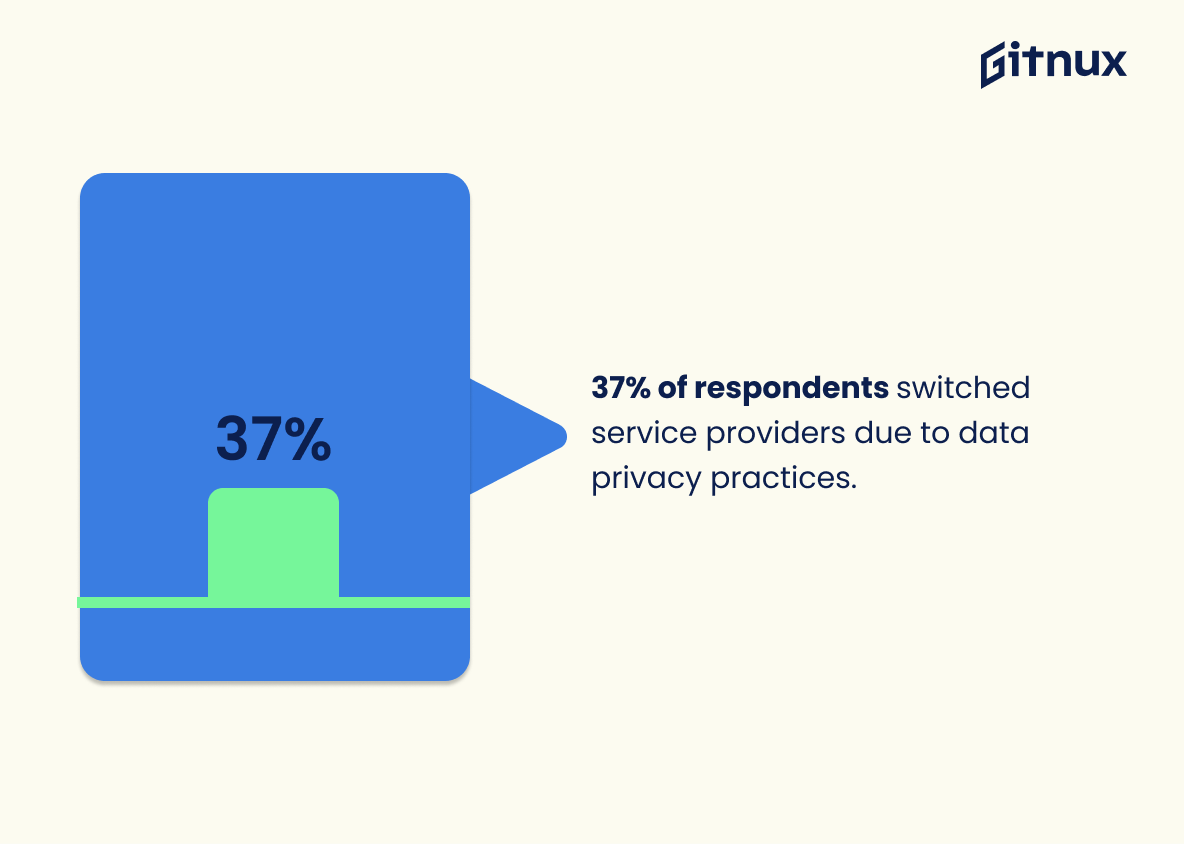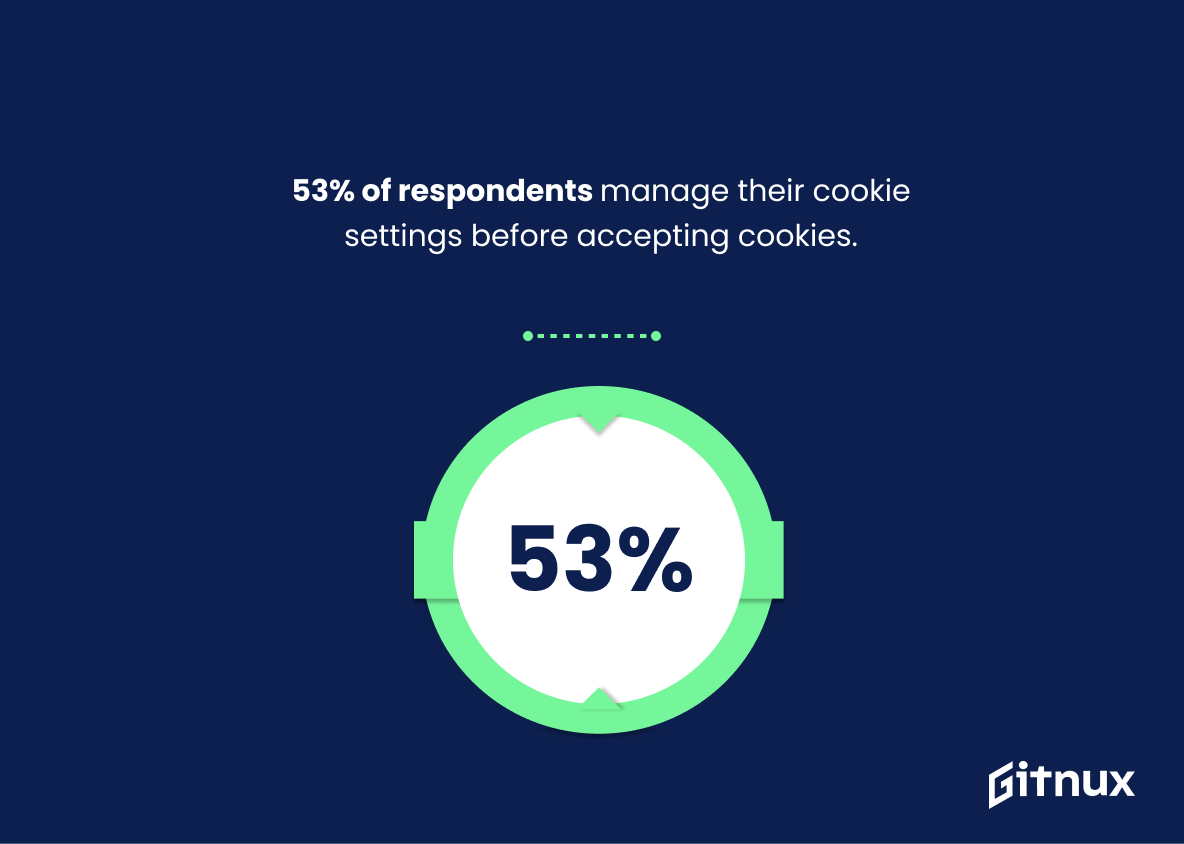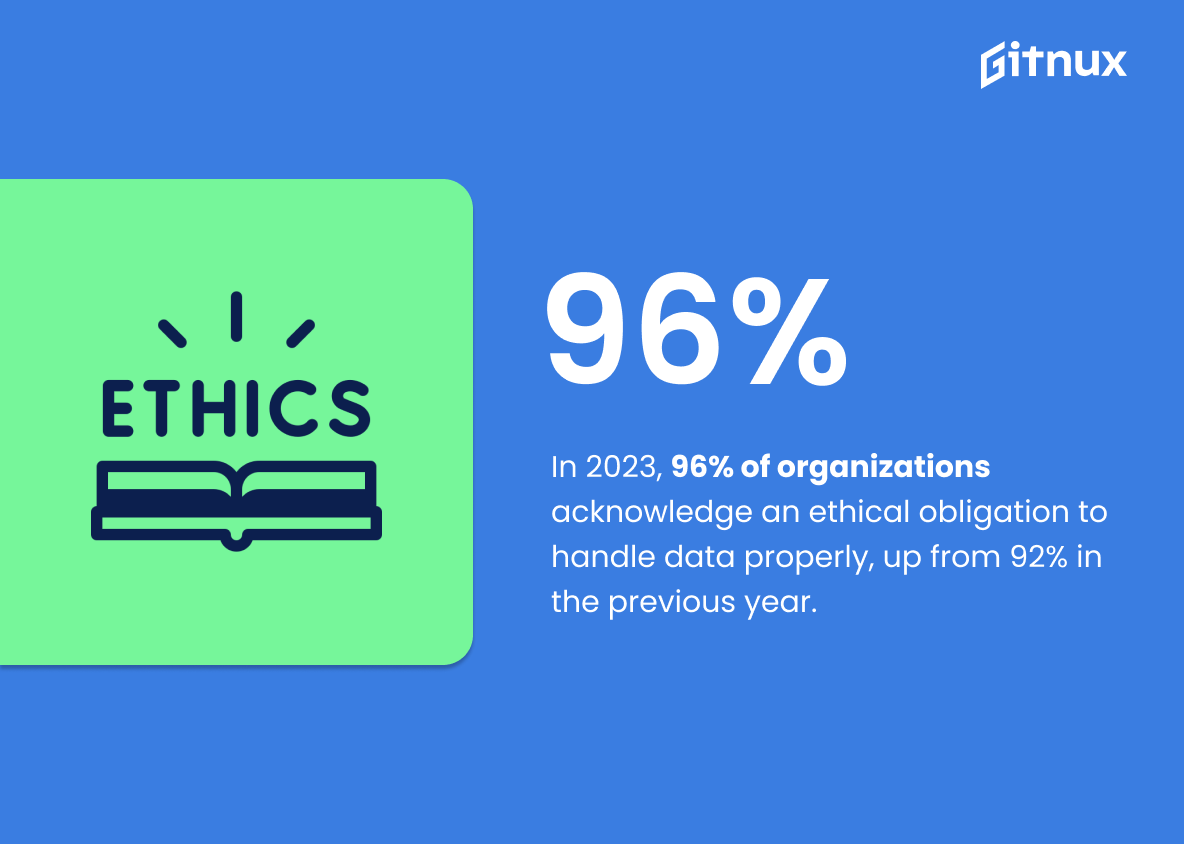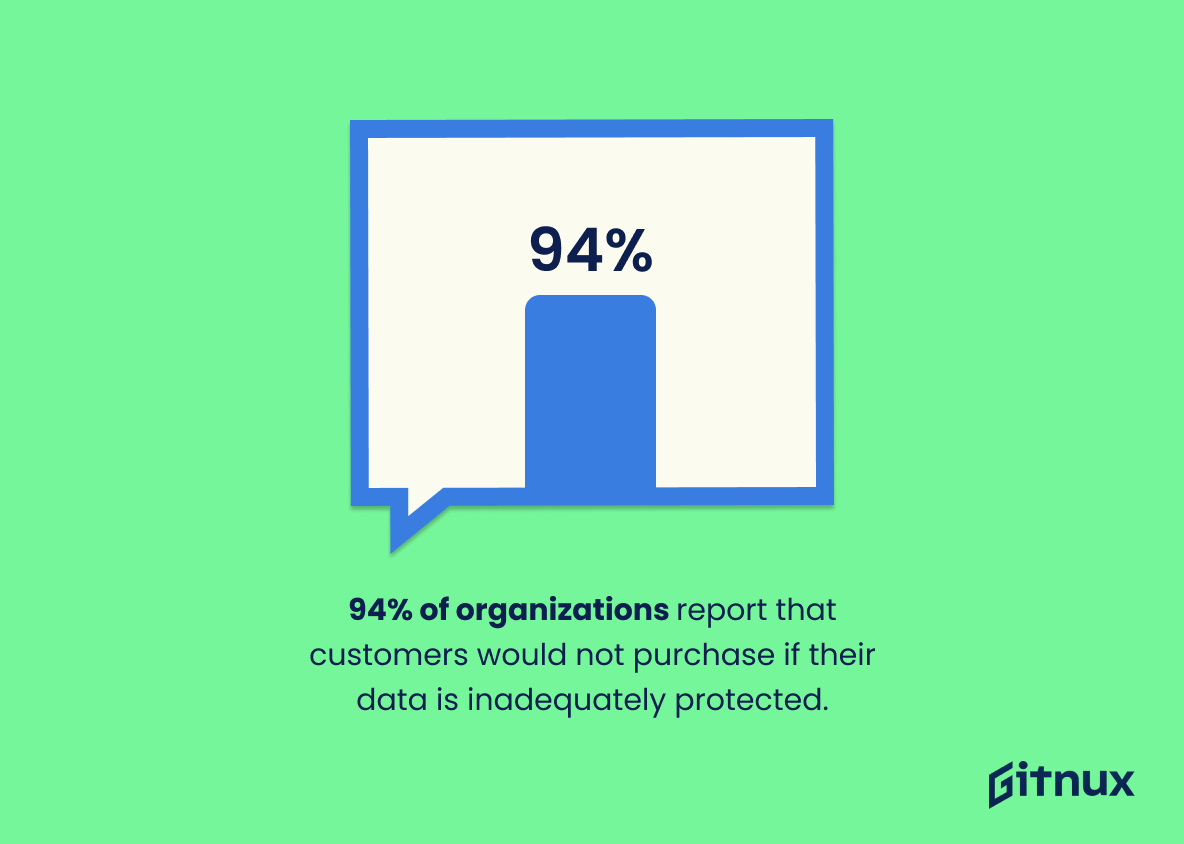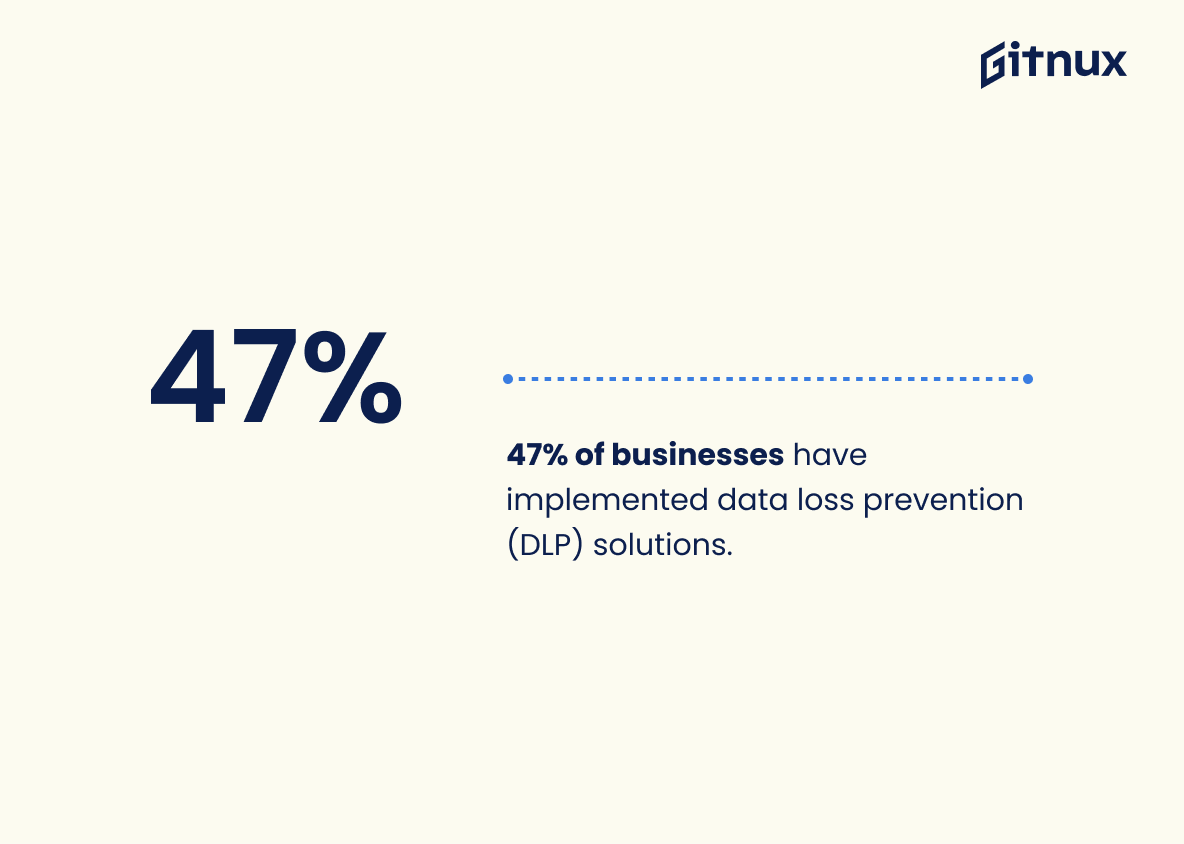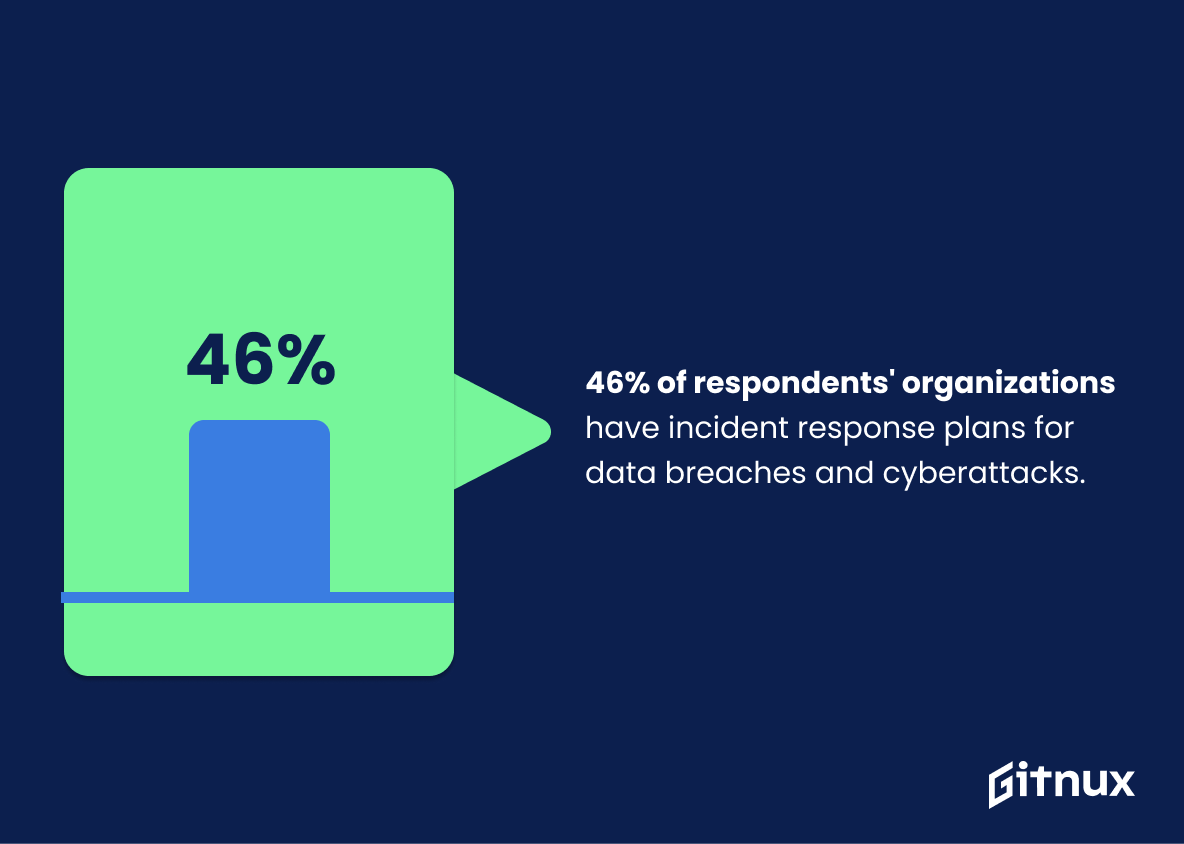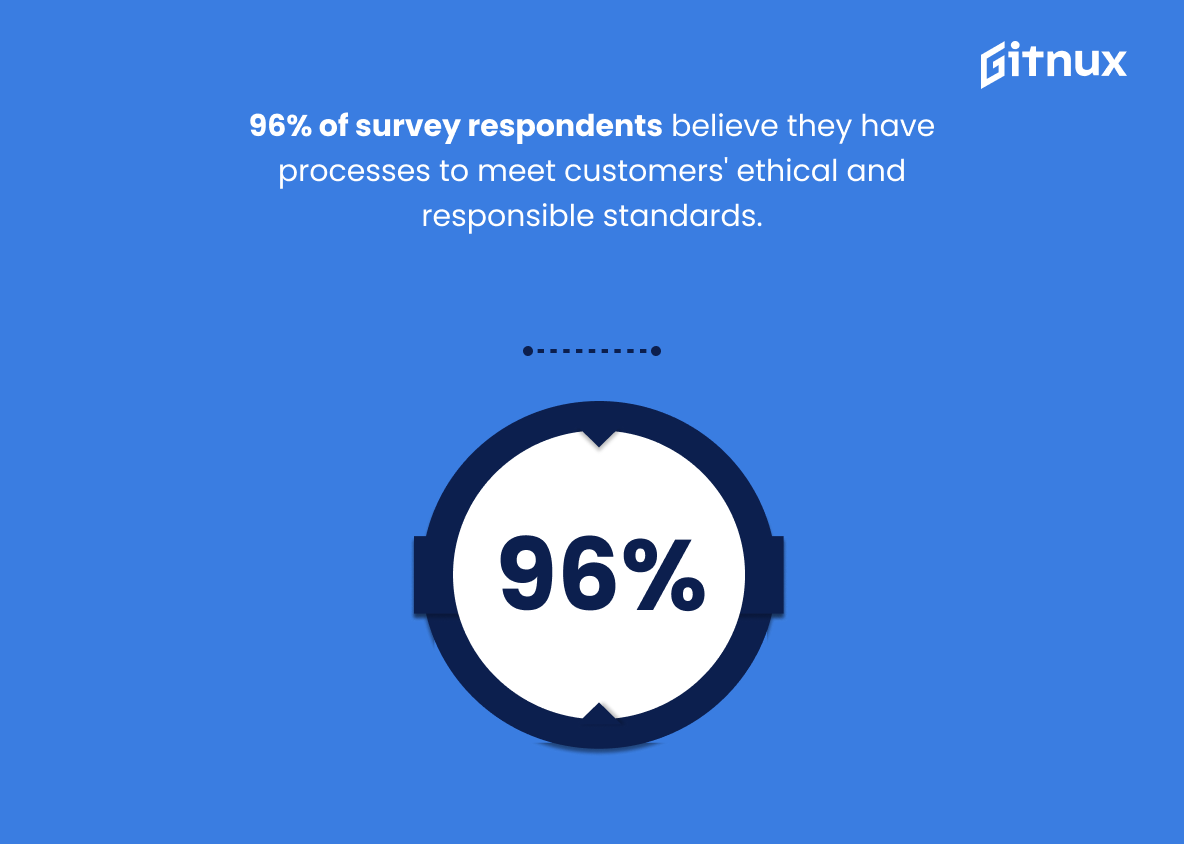Data privacy concerns have become a pressing issue in recent years as vast quantities of personal data are collected and stored with the rise of digital technology, and it is essential to protect personal data from unauthorized access, use, and disclosure. Individuals are becoming more aware of the importance of data privacy, and are demanding that their personal information is handled securely and responsibly. This has led to the development of numerous data privacy regulations, including the General Data Protection Regulation (GDPR), which aims to protect individuals’ personal information and maintain their trust in how organizations handle their information. Data privacy is an important issue that must be prioritized in today’s digital world to safeguard the rights and personal information of individuals.
In this article, we will explore the most recent statistics regarding data breaches, data privacy regulations, data privacy statistics from the perspectives of both users and businesses, and the latest trends.
Data Privacy: The Most Important Statistics
60% of consumers would spend more money if companies handled their personal data responsibly.
In 2022, the average cost of a data breach worldwide was $4.35 million.
Data breaches statistics
Data breaches are becoming more frequent and sophisticated, affecting all types of organizations. These breaches can expose, steal, or misuse medical records, personal data, and confidential business information.
Approximately 109,000 personal data breaches have been reported to regulators, with a global average cost of $4.35 million per incident, according to IBM.
Recently, T-Mobile suffered from another data breach, affecting approximately 37 million postpaid and prepaid customers whose information was compromised.
For the 12th consecutive year, the United States had the highest cost of a data breach. Specifically in 2022, the figure reached $9.44 million, which was more than double the global average.
The healthcare industry has been particularly hard hit, with an average cost of a breach is $10.1 million, which went up 42% since 2020. The healthcare industry had the highest average cost per data breach for the 12th year in a row.
45% of all data breaches are found to occur in the cloud. The average cost of a data breach in organizations with private clouds is $4.24 million, while the figure for public clouds is $5.02 million.
It is essential for businesses to prioritize data security and be well-prepared to respond to a breach, in an effort to minimize its impact and safeguard sensitive information.
Data privacy regulations statistics
Data privacy regulations have become increasingly prominent globally as personal data is being collected, stored, and processed on a massive scale. In the European Union and the United States, the GDPR and the CCPA have been in effect since 2018 and 2020 respectively, setting a high standard for data privacy rights.
71% of the world’s countries have enacted data and privacy protection legislation. In the meantime, 15% of all nations have no legislation, 9% have draft legislation, and 5% have no data.
The total GDPR fines amount to approximately €56 million, but nearly 90% of this amount is attributable to a single fine: the €50 million fine imposed on Google by the French data protection agency CNIL.
Amazon.com Inc. was fined $877 million by Luxembourg for violating the GDPR; this is the largest penalty ever imposed.
Over 60% of businesses worldwide are increasing their investment in data privacy compliance due to regulations such as GDPR and CCPA.
59% of companies reported that they currently meet all GDPR requirements. In addition, 29% of respondents expect to be GDPR-compliant within a year, compared to 9% who believe it will take longer. Only 3% of respondents did not believe GDPR applied to their organization.
80% of global companies say that GDPR compliance alone costs their organization more than $1 million annually.
66% of US consumers want the government to adopt privacy laws like the GDPR.
35 of the 50 U.S. states have at least considered data privacy regulation.
Companies are attempting to balance compliance with these regulations with innovation and the use of data. The increased emphasis on data privacy is predicted to result in the creation of additional regulations and laws in the future.
User perspectives on data privacy
As technology advances and consumers realize the value of their personal data and the risks of sharing it online, consumer attitudes toward data privacy are changing.
84% of survey respondents indicated that they care about data privacy.
79% of consumers said they would be willing to share their personal information with a company they trusted in exchange for personalized services or discounts.
60% of consumers would spend more money if companies handle their personal data responsibly.
81% of US survey respondents believe they have lost control over the collection and use of their personal data.
81% of respondents agreed that a company’s treatment of personal information reveals how it views and respects its customers.
76% of respondents say they would not purchase from a company they did not trust with their personal information.
37% of respondents reported that they had switched service providers due to data privacy practices.
Consumers have cut ties with companies over data privacy concerns. 33% of these left social media companies and 28% left Internet service providers (ISPs), and they also left other types of businesses.
53% of respondents indicate that they manage their cookie settings on a website prior to accepting cookies.
46% of respondents who own a home listening device say they regularly deactivate it to protect their privacy.
Consumers also take action against companies that violate their data privacy trust, such as deleting accounts on compromised websites and avoiding doing business with organizations with poor privacy practices. Companies must prioritize data privacy to maintain consumer trust and protect sensitive information.
Check out our latest B2B Customer Experience Statistics
Business perspectives on data privacy
Data privacy is of the utmost importance to businesses because it protects sensitive information and maintains consumer trust. By prioritizing data privacy, businesses can demonstrate their dedication and commitment to protecting sensitive information.
In 2023, 96% of organizations agreed that they have an ethical obligation to treat data properly, up from 92% in the previous year’s survey.
95% of businesses now cite privacy as a business imperative.
94% of organizations reported that their customers would not purchase from them if their data was not adequately protected.
95% of organizations reported that privacy is an integral part of their culture.
96% of survey respondents believe they have processes in place to meet the ethical and responsible standards that customers expect.
87% of US organizations have implemented multi-factor authentication to protect sensitive data.
46% of respondents indicated that their organizations had incident response plans to manage and respond to data breaches and cyberattacks.
62% of businesses have implemented encryption to safeguard sensitive information.
47% of businesses have implemented solutions for data loss prevention (DLP).
Implementing strong data privacy practices and being transparent about their data collection and usage can help businesses to establish and sustain a positive reputation and foster customer loyalty.
Data privacy trends in 2024
Potential data privacy trends for 2023 may include an increase in the adoption of privacy-enhancing technologies, a greater emphasis on ethical data use, more regulation of data privacy and protection, and a heightened emphasis on data security.
According to a survey by the International Association of Privacy Professionals (IAPP), 63% of organizations intend to implement privacy-enhancing technologies (PETs) within the next year.
87% of global CEOs are investing in cybersecurity to build customer trust. Additionally, according to a report by the World Economic Forum, 84% of consumers prioritize data privacy when selecting products and services.
More than 120 countries have enacted or are in the process of enacting data protection laws. In addition, according to a survey by Deloitte, 71% of organizations anticipate that data protection regulations will become stricter within the next 12 months.
These trends reflect the increasing significance of data privacy and protection in the digital age, and organizations that prioritize them will be in a stronger position to protect personal data and build customer trust.
Check out our latest VPN statistics
Conclusion
In today’s digital world, data privacy has become a major concern for both individuals and businesses. As the amount of collected and processed personal data continues to increase, the need for effective data privacy measures has never been greater. As data breaches and cyberattacks become more frequent, organizations that fail to protect personal data risk reputational and financial damage. By prioritizing data privacy and adopting robust privacy-enhancing technologies, businesses can build customer trust, comply with regulations, and protect sensitive personal information.
References
Cisco: “Building Consumer Confidence Through Transparency and Control”, cited in February 2023 (Source)
Cisco: “Consumer Privacy Survey”, cited in February 2023 (Source)
Cisco: “Consumers want more transparency on how businesses handle their data, new Cisco survey shows”, cited in February 2023 (Source)
Cisco: “Maximizing the value of your data privacy investments”, cited in February 2023 (Source)
Cisco: “Privacy’s Growing Importance and Impact”, cited in February 2023 (Source)
CNBC: “Data privacy rules are sweeping across the globe, and getting stricter”, cited in February 2023 (Source)
Deloitte: “What consumers really think about sharing their personal information”, cited in February 2023 (Source)
DLA Piper: “DLA Piper GDPR Fines and Data Breach Survey: January 2023”, cited in February 2023 (Source)
GDPR: “GDPR fines after one year: Key takeaways for businesses”, cited in February 2023 (Source)
IBM: “Cost of a data breach 2022”, cited in February 2023 (Source)
IBM: “Cyber Resilient Organization Study 2021”, cited in February 2023 (Source)
persona: “Top GDPR statistics businesses must know”, cited in February 2023 (Source)
PwC: “A privacy reset — from compliance to trust-building”, cited in February 2023 (Source)
Statista: “Average cost of a data breach worldwide from 2014 to 2022”, cited in February 2023 (Source)
Tech.co: “Data Breaches That Have Happened in 2022 and 2023 So Far”, cited in February 2023 (Source)
Tessian: “30 Biggest GDPR Fines So Far (2020, 2021, 2022)”, cited in February 2023 (Source)
Truata: “Global Consumer State of Mind Report 2021”, cited in February 2023 (Source)
UNCTAD: “Data Protection and Privacy Legislation Worldwide”, cited in February 2023 (Source)
ZipDo, cited June 2023: Data Privacy Statistics
